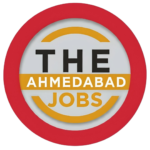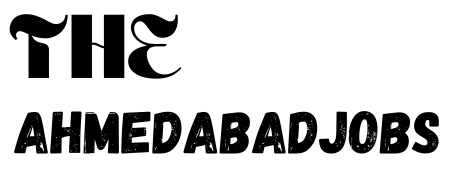Introduction: Understanding Employer Expectations
In today’s competitive job market, understanding what employers look for in a candidate can significantly enhance your chances of landing your desired position. Employers’ expectations often serve as a critical benchmark for assessing candidates during the hiring process. By grasping these key traits and skills, job seekers can strategically tailor their resumes and prepare effectively for interviews, showcasing the most relevant and compelling strengths that align with employer needs.
While specific expectations can vary widely across industries, there are foundational qualities that remain consistent. Recognizing these common themes can offer valuable insights into what makes an ideal candidate. For instance, attributes such as strong communication skills, teamwork, adaptability, and problem-solving capabilities are universally prized, regardless of the particular field. Employers seek individuals who are not only proficient in their areas of expertise but also demonstrate a proactive, solution-oriented approach and a capacity to thrive in dynamic work environments.
Moreover, each industry may have its own set of specialized skills and attributes that are essential for success. Understanding these industry-specific needs can further refine your job search strategy. For example, technical proficiency and analytical skills may be paramount in the tech industry, while creativity and attention to detail might be more valued in the creative arts sector. By identifying these nuances, candidates can better position themselves as the ideal fit for the roles they aspire to secure.
The ability to align your personal attributes and professional skills with what employers are seeking can make a notable difference in your job search effectiveness. By emphasizing the right traits and skills on your resume and during interviews, you increase your potential to stand out from the competition, thereby enhancing your employability and career advancement prospects.
Strong Communication Skills: Articulating Ideas Clearly
In today’s rapidly evolving workplace, strong communication skills are paramount. Both verbal and written communication abilities play a critical role in ensuring that ideas are conveyed effectively and efficiently. Being able to articulate thoughts clearly can significantly enhance teamwork, prevent misunderstandings, and bolster productivity within any organization.
Effective verbal communication involves more than just talking; it also encompasses active listening, asking clarifying questions, and using non-verbal cues such as body language and eye contact. In team settings, clear verbal communication fosters collaboration and ensures that all members are on the same page, leading to more cohesive and successful projects. These skills also help prevent conflicts caused by miscommunication, thereby maintaining a positive work environment.
Written communication, on the other hand, is vital for creating documents, emails, proposals, and reports. An ability to convey complex information succinctly and without ambiguity can significantly streamline workflows and reduce the likelihood of errors. Concise and well-structured written documents can save time and resources, underscoring the importance of this skill in enhancing overall productivity.
Job seekers can showcase their communication skills in several ways. On a resume, candidates might highlight specific roles or projects that required extensive communication, noting any successful outcomes. For example, a candidate could mention leading a team project, presenting findings to senior management, or drafting vital reports for stakeholder review. Including measurable achievements that resulted from strong communication can provide tangible evidence of this competency.
During interviews, applicants can demonstrate their verbal communication skills through clear and concise responses. Articulating experiences and examples in an organized manner reflects an ability to think and speak clearly. Additionally, engaging actively with the interviewer by asking thoughtful questions indicates good listening skills and a proactive approach to communication.
In summary, strong communication abilities are indispensable in the modern workplace. Job candidates who excel in both verbal and written communication stand a better chance of contributing effectively to their organizations, thereby positioning themselves as invaluable assets.
Problem-Solving Abilities: Thinking Critically and Creatively
Employers place tremendous value on candidates who exhibit strong problem-solving abilities, as these skills indicate a person’s capacity to navigate multifaceted challenges and enhance organizational processes. In today’s increasingly complex and dynamic business landscape, the ability to think critically and creatively is indispensable.
Critical thinking involves analyzing situations, understanding implications, and making informed decisions. Creative thinking, on the other hand, emphasizes innovation and the ability to generate unique solutions to problems. Together, these competencies empower individuals to tackle issues from multiple angles, ensuring well-rounded and effective resolutions.
Employers seek candidates who can demonstrate these skills through tangible past experiences. Highlighting specific instances where you have successfully addressed complex problems can significantly bolster your candidacy. For instance, detailing a scenario where you led a project to overcome a significant hurdle not only showcases your problem-solving prowess but also provides insight into your ability to lead and manage under pressure.
Moreover, it’s essential to articulate how your problem-solving efforts resulted in positive outcomes. Quantifying your impact—such as through improved efficiency, cost savings, or enhanced team collaboration—can provide compelling evidence of your capabilities. Using metrics to support your achievements lends credibility and makes your contributions more relatable to potential employers.
Additionally, consider describing your methodology for tackling problems. Whether you utilize a structured approach like the Six Sigma technique or rely on brainstorming sessions to foster creative solutions, sharing your process can underscore your strategic thinking and methodical approach.
To further exhibit your problem-solving abilities, engage in continuous learning and professional development. Staying abreast with industry trends, attending relevant workshops, and earning certifications can enhance your proficiency and demonstrate a commitment to growth, making you an even more attractive candidate to prospective employers.
Adaptability and Flexibility: Thriving in Dynamic Environments
In today’s rapidly evolving job market, the ability to adapt and remain flexible is becoming increasingly valuable. Employers seek candidates who can not only withstand the winds of change but also thrive in such fluid situations. Adaptability entails being open to new ideas, approaches, and technologies. It’s not just about being reactive but proactively embracing change to stay ahead in an ever-competitive landscape.
Being adaptable often means demonstrating a willingness to take on new projects, shifting priorities as needed, and learning new skills. This trait is highly prized as it indicates a candidate’s capability to adjust to new roles, responsibilities, or environments without extensive onboarding or retraining. Flexibility, on the other hand, is about being open to various working styles and conditions, whether it’s remote work, different time zones, or multicultural teams.
To effectively communicate adaptability and flexibility, candidates should strategically highlight these traits on their resumes and during interviews. One approach on a resume is to include specific examples of times when you successfully navigated substantial change. For instance, did you effectively manage a project during a significant organizational shift? Citing such experiences can powerfully showcase your adaptive capabilities.
During interviews, prepare to discuss scenarios where you’ve demonstrated adaptability. Whether it was adopting a new software tool, pivoting a project direction mid-way, or handling unanticipated interruptions during a critical delivery, these instances attest to your ability to remain effective under changing circumstances. Highlighting your proactive approach to learning—for example, through continuous professional development or acquiring new certifications—can further substantiate your adaptability.
Ultimately, by effectively showcasing your adaptability and flexibility, you present yourself as a resilient and forward-thinking candidate. This not only appeals to employers looking to navigate their own dynamic landscapes but also sets you apart as a professional who can contribute meaningfully in any situation.
Technical Proficiency: Staying Current with Industry Tools
In today’s fast-paced job market, technical proficiency is a critical trait that employers prioritize when evaluating job candidates. Possessing up-to-date technical skills not only demonstrates a candidate’s competence but also shows their commitment to staying relevant in their field. Employers are particularly interested in applicants who are conversant with the latest industry-specific tools and technologies, as these individuals are more likely to contribute effectively from day one.
For instance, in the field of digital marketing, a candidate proficient in using advanced analytics tools like Google Analytics and SEMrush can offer valuable insights into campaign performance. Similarly, in software development, familiarity with contemporary programming languages and frameworks, such as Python or React, can significantly enhance a candidate’s competitiveness. By showcasing technical proficiency, job seekers can differentiate themselves and align more closely with the evolving needs of employers.
To maintain technical proficiency, continuous learning and professional development are paramount. Job seekers should actively seek opportunities to expand their skillsets, whether through online courses, certifications, workshops, or attending industry conferences. Platforms like Coursera, Udemy, and LinkedIn Learning offer a plethora of courses designed to keep professionals abreast of the latest developments in their fields. Networking with industry peers and participating in relevant forums can also provide insights into emerging trends and tools.
Furthermore, practical experience is invaluable; hence, working on personal projects or contributing to open-source initiatives can allow candidates to apply and refine their skills in real-world settings. Subscription to trade journals and technology blogs can also help job seekers stay informed about technological advancements and best practices. By proactively engaging in lifelong learning and skill enhancement, candidates not only boost their technical proficiency but also demonstrate a proactive and adaptable mindset—traits that are highly valued by employers across all industries.
Teamwork and Collaboration: Working Well with Others
In today’s dynamic professional landscape, the ability to work well with others is paramount. Teamwork and collaboration are not just catchphrases; they are essential components of a productive and harmonious workplace. Employers place a high value on candidates who can seamlessly integrate into teams, contribute constructively, and help steer collective efforts toward shared goals.
Effective collaboration hinges on several key traits, including communication, adaptability, and mutual respect. When individuals understand and leverage each team member’s strengths, it fosters an environment ripe for innovation and success. Moreover, the presence of strong teamwork skills can significantly alleviate workplace conflicts, promoting a culture of inclusiveness and shared responsibility.
Collaboration skills often become a deciding factor during hiring processes. Employers look for tangible evidence that a candidate can thrive in team settings. For example, mentioning specific instances where you’ve successfully engaged in team projects can clearly highlight your collaborative abilities. Whether it’s a challenging group assignment during your academic career or a complex project at a previous job, detailed descriptions of these experiences can provide solid proof of your teamwork capabilities.
References from colleagues or supervisors also serve as valuable endorsements of your teamwork skills. A recommendation that praises your cooperative nature, willingness to assist team members, and ability to contribute to achieving collective goals can strongly influence potential employers’ perceptions.
Furthermore, utilizing phrases like “led a team”, “collaborated with”, or “contributed to” in your resume and cover letter can succinctly communicate your teamwork proficiency. Highlighting specific skills such as conflict resolution, active listening, and flexibility in working with diverse groups underscores your collaborative potential and makes you a more attractive candidate.
In essence, showcasing your teamwork and collaboration skills effectively can set you apart in the eyes of employers. Demonstrating these traits through past experiences and credible references can underscore your readiness to contribute positively to any work environment.
Leadership Qualities: Guiding and Inspiring Others
Employers place a high premium on leadership qualities, recognizing their importance not only in management positions but across all levels of an organization. Leadership is not confined to titles or specific roles; it is a trait that manifests in one’s ability to guide, motivate, and inspire peers and team members towards achieving common goals. This capacity for leadership enhances team coherence and propels productivity, which is why it is sought after in job candidates.
Leadership qualities encompass a variety of skills such as effective communication, conflict resolution, and decision-making. An employee who can lead by example, provide constructive feedback, or foster a collaborative environment is invaluable in any position. Such individuals are seen as catalysts for innovation and can significantly contribute to a positive workplace culture. By highlighting your leadership experiences, you can demonstrate your potential to add value to the company.
Showcasing your leadership abilities can be achieved in multiple ways. For instance, mention instances where you’ve taken the lead on a group project, coordinated volunteer work, or played a key role in previous job roles. Specific examples might include organizing a successful event, spearheading a community initiative, or leading a team to overcome a challenging project deadline. These experiences illustrate your initiative, resilience, and ability to steer efforts toward successful outcomes.
When applying for a job, it is beneficial to highlight these experiences in your resume and during interviews. Use concrete examples and quantifiable achievements to underscore your leadership experience. For instance, you might phrase it as, “Led a team of five to increase departmental efficiency by 20% through the implementation of new processes,” or “Coordinated a volunteer team to raise $10,000 for local charities.” Such specifics not only reinforce your leadership qualities but also provide a clear picture of your impact.
Ultimately, whether you are applying for an entry-level position or a senior role, emphasizing your leadership abilities can set you apart from other candidates. Employers are constantly on the lookout for individuals who can contribute more than just technical skills; they seek leaders who can inspire and drive their teams to excellence.
A Positive Attitude and Professionalism: Making a Good Impression
Maintaining a positive attitude and demonstrating professionalism are crucial aspects of the hiring process that significantly influence an employer’s perception of a candidate. Exhibiting these traits signals not only your enthusiasm for the position but also your potential to contribute constructively to the organization’s work environment.
A positive attitude can be reflected through various behaviors and soft skills. For example, showing genuine interest during an interview, asking insightful questions, and conveying a sense of optimism about the potential job role can leave a lasting impression. Employers value candidates who appear enthusiastic and ready to take on challenges with a proactive mindset.
Professionalism, on the other hand, encompasses a range of attributes and behaviors. Punctuality, for instance, demonstrates respect for the interviewer’s time and indicates reliability. Additionally, adhering to a dress code that aligns with the company’s culture shows your aptness to fit within their professional setting. Politeness and courteous communication, both verbal and non-verbal, further reinforce a candidate’s professional demeanor.
Soft skills like effective communication, problem-solving, teamwork, and resilience are integral to displaying a professional attitude. Candidates who can articulate their thoughts clearly, listen actively, and collaborate efficiently are often seen as valuable assets to the team. Moreover, approaching setbacks with a solution-oriented mindset rather than dwelling on the problem portrays resilience and adaptability, traits that are highly sought after in a dynamic workplace.
In conclusion, a positive attitude and professionalism are key factors that employers look for when assessing job candidates. These qualities not only enhance your appeal during the hiring process but also contribute to creating a harmonious and productive work environment. Embracing these traits can set you apart in the competitive job market, showcasing your readiness to contribute positively to the organization.
Conclusion: Preparing to Meet Employer Expectations
As the job market becomes increasingly competitive, understanding the key traits and skills that employers seek in candidates is essential. Strong communication abilities, problem-solving prowess, adaptability, and teamwork are among the top qualities employers value. In addition, technical expertise in relevant fields, a keen willingness to learn, and effective time management skills further distinguish exceptional candidates.
Conducting self-assessments and seeking constructive feedback are pivotal steps in identifying areas for improvement. These practices not only help individuals recognize personal strengths but also uncover opportunities for growth. By actively working on these areas, candidates can better align their skills with employer expectations.
Continuous learning and personal development remain crucial elements in staying relevant and competitive. Engaging in professional development courses, attending workshops, and acquiring new certifications can significantly enhance a candidate’s profile. This commitment to growth signals to employers a proactive and dedicated approach to career advancement.
Perseverance and self-belief are indispensable in the job search journey. While setbacks and rejections are inevitable, maintaining a positive mindset and unwavering determination are key to eventual success. Candidates who believe in their capabilities and remain persistent are more likely to secure fulfilling employment opportunities.
In the end, standing out in the job market is a multifaceted effort, requiring a blend of technical skills, interpersonal abilities, and a proactive attitude towards personal and professional growth. By embracing these attributes, individuals can not only meet but exceed employer expectations, paving the way for a rewarding career path.


